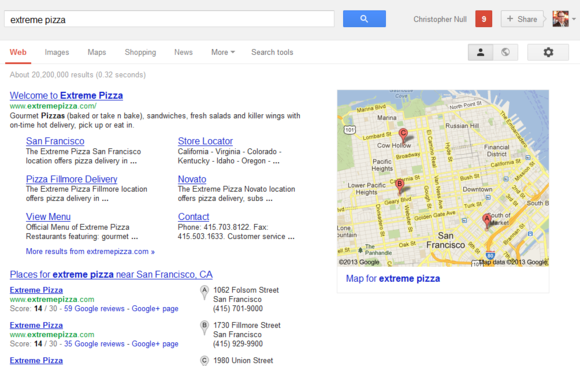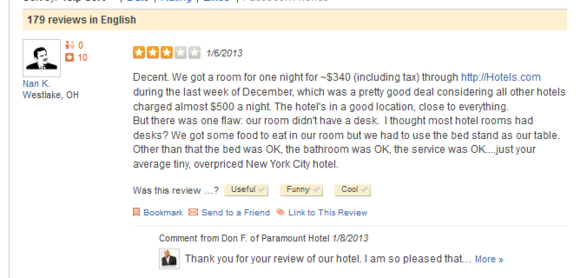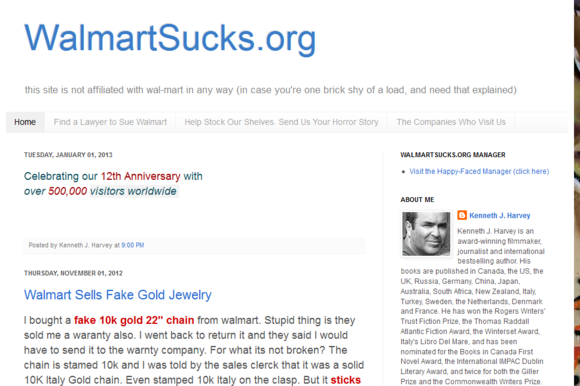Keeping tabs on your company's online reputation is one thing. But angry customers trash-talking your business can sabotage your good name overnight. It's no easy task to minimize the damage done from the Web equivalent of the slam book.
The following tried-and-true tactics can help you get public opinion of your business back on track. The best piece of advice? Start thinking about damage control before you need these tips.
Be proactive
One of the key tenets of managing your online reputation is finessing what happens when people search for you on Google and other search sites. In many ways, online reputation management is a basic SEO problem.Among the most challenging concerns: Someone has panned your product or company in a blog post or some other online forum, and that post is showing up at or near the top of Google results. Even if Web searchers don't click the link, merely seeing the headline alone ("Bob's Widgets are junk!") can turn away potential customers, devastating sales.

On top of that, make sure your business is registered on every major social network, under the full name of the business. This includes Completed.com, Facebook, Google+, LinkedIn, Pinterest, Tumblr, and Twitter. Saturate the Web with your presence. If you're active on the sites (regular, automated updates can do wonders), these pages will also rank well and tend to push down negative comments. Finally, make sure that you've claimed your Google Places account, and that it is accurate.
The key with all of these strategies is to get them ready early. If you wait until negative reviews and comments start showing up online, mitigating the damage will be far tougher.

Don't feed the trolls
Let's say you have someone trashing you on Twitter, their blog, or an online forum. How do you respond? Online commenters are notoriously as stubborn as they are vocal. The trick to mitigating damage from online grousing is knowing when to put up a fight and when to walk away.Advice on dealing with negative online comments—or "trolls"—isn't unanimous, and different experts offer different strategies.
Zammuto recommends simply not engaging when at all possible. "Don't respond to online complaint boards," says Zammuto. "This just increases strength of listings and invites more attacks."
The picture is a little different if the commentary is taking place on your own blog, your Facebook page, or your Twitter account. Here, you control the battlefield, and if a comment is truly damaging, inflammatory, or slanderous, you can always delete it. (Although it's a common strategy, bear in mind that this tactic can have its own fallout by branding you a quasher of free speech.)
If you don't want to delete a comment, you can fairly easily bury it. A negative note on your Facebook page or Twitter feed will rapidly fall off the radar if you post another dozen updates. Comments on blog posts are also quickly lost as you publish more and more follow-up posts. While these things tend to live forever in Google's search results, fresher content is what the vast majority of your visitors and customers will see.
When is a response warranted?

Your overtures should be as private as possible, such as via email or a direct message on Twitter. Your goal should always be to encourage the complaining party to revise or remove their message from whatever forum it's on, although directly asking for action like that should not come until after you have corrected the problem they're alleging.
And remember: If someone is griping about your business or its products, they might have a valid complaint. Consider all complaints seriously and take corrective action when it's warranted.

Deal with Yelp, eBay, and Amazon
Third-party sites that accept reviews are some of the toughest places to protect your reputation, and that's by design. Sites such as these make it their business to protect and promote the interests of consumers, and if you're on the other side of the fence, you're automatically seen as the enemy, at least to a certain degree. Even the courts have been siding with shoppers, with recent major rulings protecting consumers' right to vent on Yelp and other consumer-review sites.The protocol for dealing with complaints here, however, is basically the same as outlined above. Hostile and profane comments should be ignored. People who post articulate and well-conceived comments may be engaged. However, Zammuto says that Yelp can be particularly damaging. "Based on our experiences," he says, "Yelp will filter out good reviews once a brand receives bad reviews. And when the bad reviews are false and egregiously negative, Yelp will not remove them." Zammuto's approach to negative Yelp reviews is to never respond—as he says this pushes the page up on Google results—and to use SEO tactics to suppress them.
Ask for coverage
With third-party sites that allow reviews, Fertik notes that getting positive reviews is another important step in stemming the damage from negative ones. Positive reviews increase your average ratings, of course, and fresher reviews will push older reviews down the page."Businesses can ask customers for honest reviews to help build up the base of reviews people will see," Fertik says. "It's just important that businesses ask for accurate feedback, that they don't incentivize or pay for reviews, and that they never write fake reviews themselves."
When someone leaves a positive review, reply to it with a thank-you post, which will further increase its credibility and the perception of your responsiveness.
When a hard stance is required
If things become really nasty, you might have no choice but to get litigious. You can take any of numerous legal avenues to have negative material taken down, but generally these tactics will be successful only if some law is being broken or if defamation—something provably false said about your company—is involved.Litigation gets expensive quickly, and offers varying rates of success. But if you're determined to go this route, here's a brief guide to your options, courtesy of Zammuto (who is happy to work with an attorney to file these suits for you).

- DMCA takedown: A simple tactic that you can use if a blogger has stolen copyrighted material from you in some way is to invoke the controversial Digital Millennium Copyright Act.
- UDRP complaint: Domain-name registrars must follow the UDRP (Uniform Domain-Name Dispute-Resolution Policy), which helps protect trademarks. A complaint is useful if someone is cybersquatting on a domain name with your name (or a variant).
- Defamation lawsuit: Can you prove that statements made about your company are false and malicious? Even just the threat of a lawsuit can often get negative material taken down.
- Harassment charges: Any physical threat can be the basis of a criminal complaint.
Sign up here with your email

ConversionConversion EmoticonEmoticon